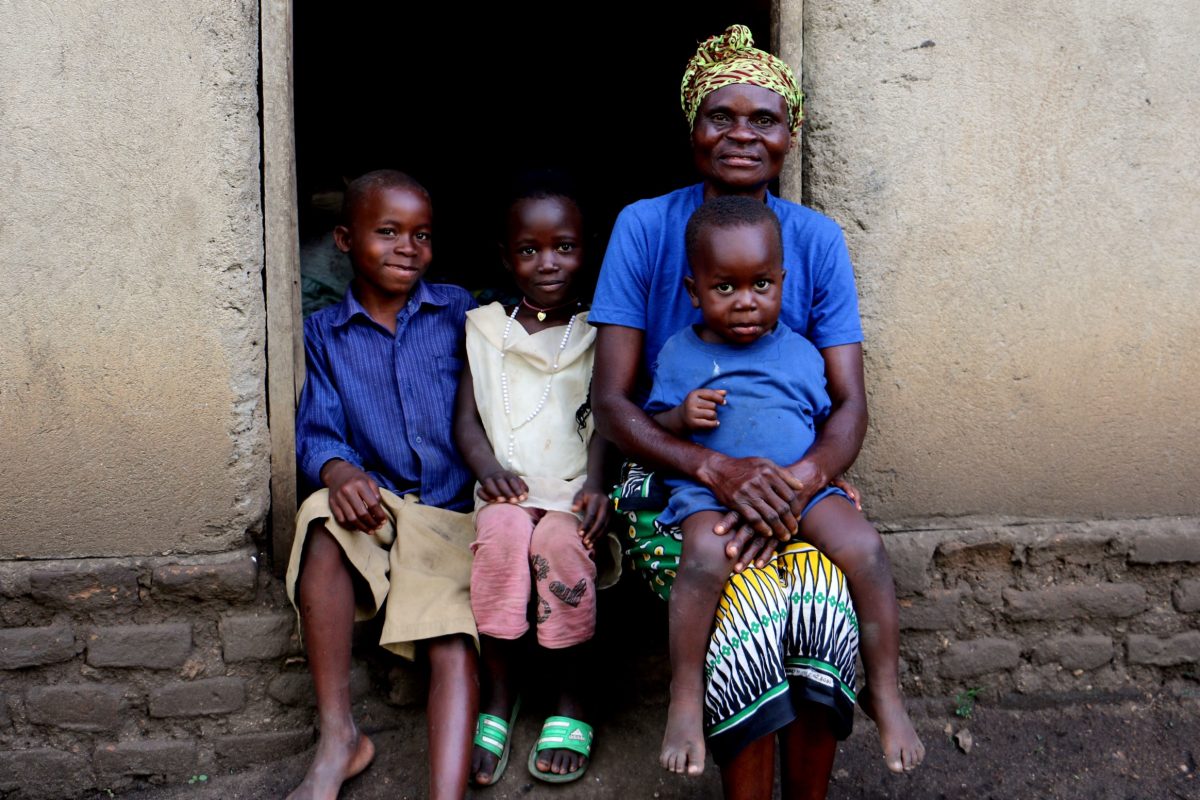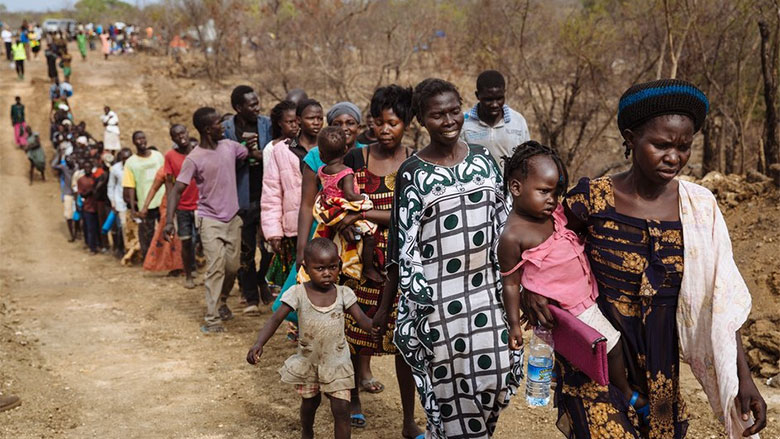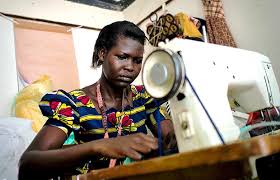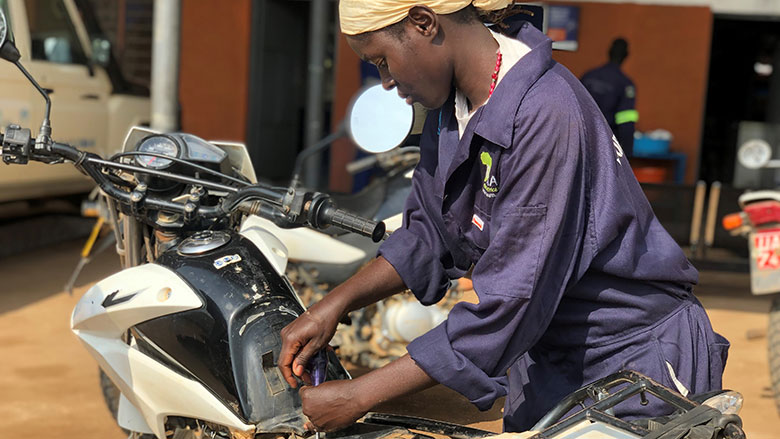Ten years ago, 54-year-old Binaleta Mbambu and her husband struggled as farmers. They had diversified to maize from cotton because it was expensive to cultivate, and like their neighbours, they sought a crop that could provide both money and food. But their house was not big enough to store all their harvest.
With each harvest, Binaleta’s family and others in Kabirizi village loaded their crop for transportation to one of two large warehouses that WFP established 32 kilometres away in the western Ugandan town of Kasese. The large warehouse, with a 2,000 metric-ton-capacity, eventually sold the crop on the farmers’ behalf. However, the farmers had little control over pricing.
During a meeting between the Kabirizi co-operative society and WFP, they discussed the possibility of co-financing the construction of a new 300 metric-ton-capacity warehouse across the road from Binaleta’s house.
“We owned a piece of land worth UGX 12 million (US$3,270)and as a group we were able to contribute UGX 1 million (US$ 270) to the construction,” Binaleta says, “and so we allowed access to our land and construction began in 2015.”
Cross border trade
The warehouse is now a solid multi-purpose business centre, strategically located along a highway that leads to the Democratic Republic of Congo (DRC). It benefits 600 households in Binaleta’s sub-county.
“We are lucky to have our own warehouse, to be independent, to access traders directly and state our price,” says Consta Ndungo, a 65-year-old father of twins and chairperson of the Kabirizi co-operative. “We like maize because it is an easy game. And now we also grow beans, soy bean, sesame and peanuts, all of which we can store and trade directly through the business centre.”
“We sold 82 tons of grain to traders from the DRC in 2017,” another member of the cooperative, 50-year-old mother, Ziporah Ssendhoto, says. The group also sold 24 metric tons to traders from Rwanda in November, she adds with pride. Her profits out of the warehouse have allowed her to educate her children.
Ziporah lives several kilometres from the warehouse, but she visits regularly to attend trainings on warehouse management, group marketing, farming as a business and post-harvest loss reduction, and every Sunday the group meets to discuss their savings and credit scheme.
Building a brighter future
Binaleta is the chief storekeeper of the warehouse. Her five-year-old grand-daughter, Success, trails her as she shows visitors around the premises.
In the last three years, the family has built a new concrete house from their maize and cotton profits. Even though she still places her mattress on the bare earth, her grand-children hardly mind. They chuckle and play around her crowded bedroom.
She has two plastic silos crammed into her new house, where she also keeps a bicycle and two rabbits. She acquired the silos on another subsidy arrangement in which WFP supports small-scale farmers to reduce post-harvest food loss by providing air-tight storage solutions.
WFP has built or revamped nine big warehouses in main towns around Uganda to boost grain trade and market access through the private sector. In addition, WFP has built 70 smaller warehouses/agricultural business centres closer to communities, in partnership with the Government.
Through these smaller warehouses, WFP extends opportunities for small-holder farmers to have a contact address where they can bulk their grain together and bargain easier with higher volumes of grain. Both the farmers and buyers are able to minimize operational costs including transportation expenses incurred by traders. In the end the farmers can improve their incomes through systems they manage themselves.
The smallholders are free to continue trading through the larger warehouses. At the larger warehouses, WFP supports the private sector to market grain on behalf of the smallholders including by helping to build the farmers’ capacity to produce quality grain.
WFP’s support to small-scale farmers in Uganda aims to ensure that thefarmers, especially women, have strengthened livelihoods by 2030 for zero hunger. The agency works with NGOs and the Government to deliver this assistance, which also helps to grow the private sector.
WFP is grateful to Germany and Japan for funding its support to agricultural food systems in Uganda since 2017, and to the United States, which funded construction of the Kabirizi farmers’ warehouse.






























